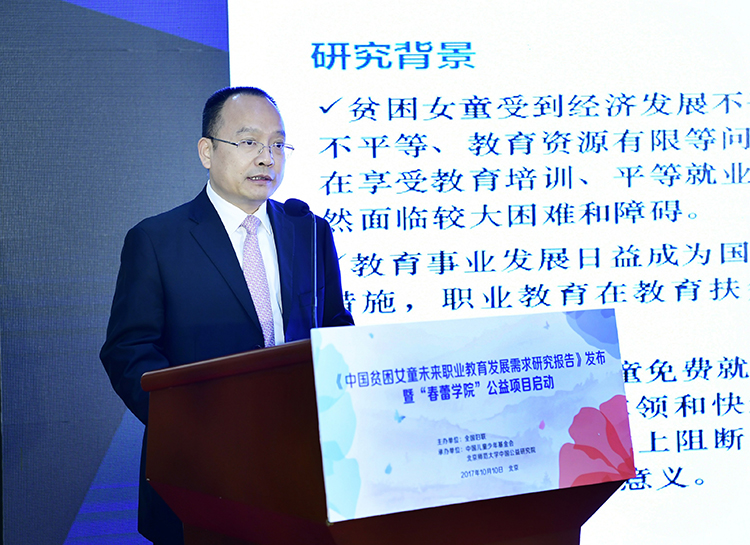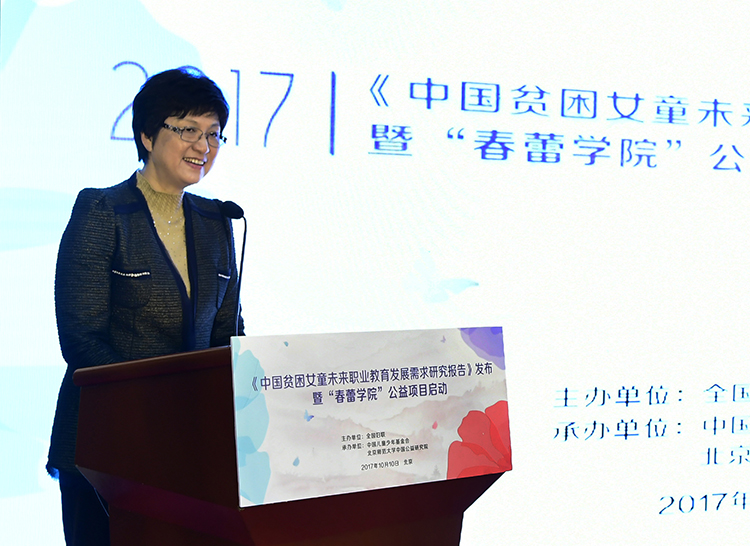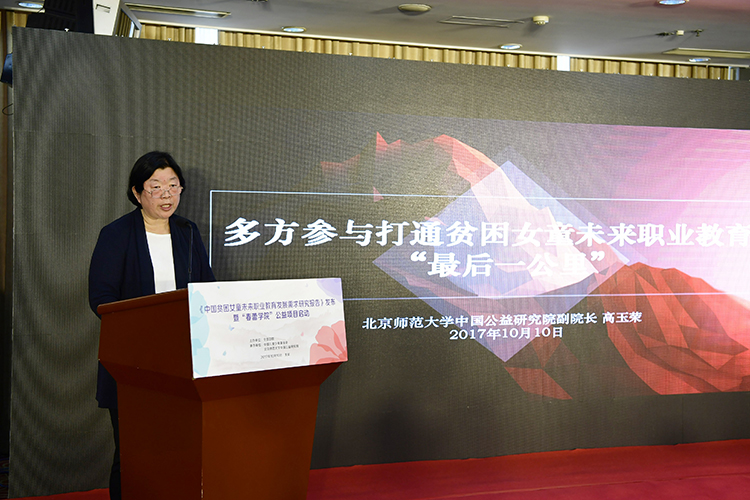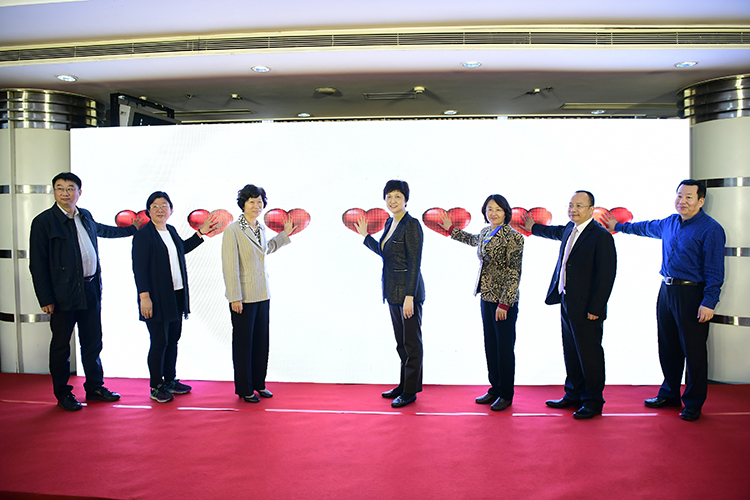The CCTF Promotes Vocational Education for Impoverished Young Girls
The China Children and Teenagers' Fund (CCTF) released on Oct 10 the 2017 research report on the vocational education demands of impoverished young girls in China and kicked off the "Spring Bud College" project, a welfare program designed to raise vocational education level for impoverished young girls, in Beijing, on the occasion of the sixth International Day of the Girl.

Zhu Xisheng, secretary-general of China Children and Teenagers' Fund releases the 2017 Research Report on Vocational Education Demands of Impoverished Young Girls in China and kicks off the "Spring Bud College" project.
The research was conducted over four months beginning from early 2017 by the CCTF and Beijing Normal University's China Philanthropy Research Institute, which had a field study on the vocational education demands of impoverished young girls. It covered 158 villages of ten counties in five provinces in China's central and western regions.
Findings showed that vocational education can play a significant role in helping impoverished girls despite the challenges such as urban and rural differences, supply and demand imbalance, and lack of professional guidance. Vocational education targeted for impoverished young girls needs to be demand-oriented, in addition, a system is required to promote vocational education and further improve the living conditions of impoverished girls.

Deng Li, vice-president and member of the Secretariat of the All-China Women's Federation, delivers a speech.
The report and the new project of Spring Bud College will play an active and important part in the sustained efforts of advocacy for care for young girls in the society, said Deng Li, vice-president and member of the Secretariat of the All-China Women's Federation who attended the event. "The Spring Bud College will also combine social advantages to establish a vocational development system for young girls in poverty-stricken areas and to contribute to national efforts of overcoming poverty across China," Deng added.

Gao Yurong, vice-director of Beijing Normal University's China Philanthropy Research Institute, gives a speech.
Gao Yurong, vice-director of Beijing Normal University's China Philanthropy Research Institute, gave a speech, saying that the modern vocational education system allows social organizations, vocational colleges, and enterprises to work together to equip young girls in rural areas with skills to meet job requirements.
Based on research result, the CCTF launched the "Spring Buds College" project under the guidance of All-China Women's Federation and Chinese Academy of Sciences. The project will sponsor poor teenage girls in receiving cost relief vocational education, mainly in rural, minority, or impoverished areas. The education includes middle schools, senior high schools, technical secondary schools, vocational schools, vocational high schools, and junior colleges.
The project is also expected to establish partnership with enterprises and organizations, hoping to solve the employment problem of impoverished girls while cultivating technical talents.

The Spring Bud College project is part of the Spring Bud Project-Employment Action. Spring Bud Project is a welfare program launched in 1989 by the CCTF to help impoverished girls return to school. To date, it has sponsored 3.45 million impoverished girls to receive education. Over the past two decades, many girls who received sponsorship from the Spring Bud Project have worked.
We will make our best to help more children, especially girls, to have a good education, said China's first lady, professor Peng Liyuan, who is Spring Bud Project's special envoy to promote education for girls.